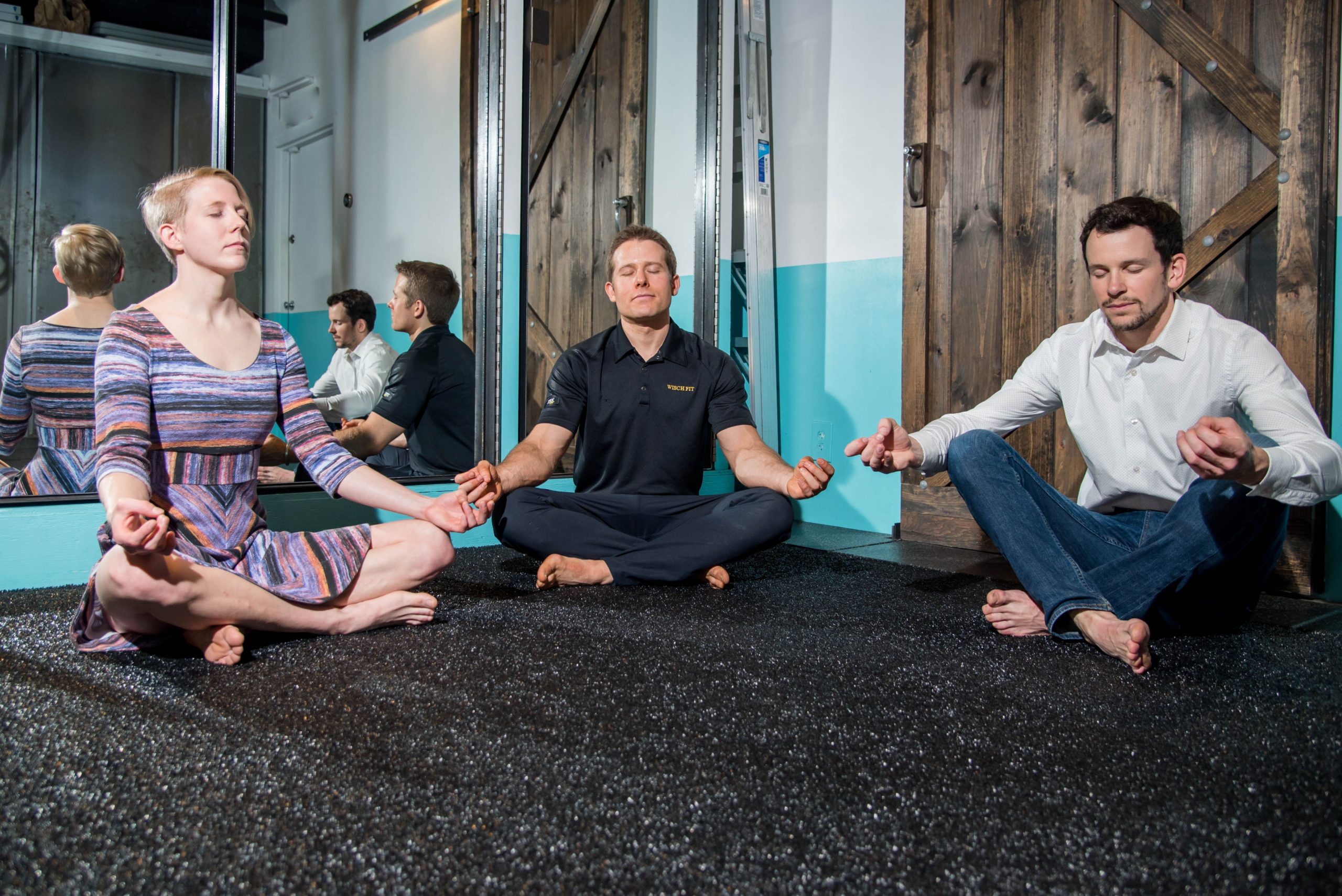Mindfulness is the mental state of being aware of the present moment. You acknowledge your body’s sensations and what is currently happening around you. Mindfulness helps us stay grounded and calm. As you practice more mindfulness it becomes easier to separate personal bias and emotions from your present situation to make logical decisions. Also, mindfulness helps reduce cognitive load, which is the amount of thoughts we juggle in our head at a given moment. Most importantly, mindfulness has been shown to significantly reduce worry and rumination, which improves anxiety and depression symptoms, along with reducing the risk for clinical depression.
Everyone can benefit from a daily mindfulness practice to fortify one’s mental fitness. Just like exercise, the more you practice it, the easier it gets and the more you experience the benefits in all areas of your life. Mindfulness can help improve symptoms for individuals struggling with mental illness, act as a preventative mental health measure and can even increase focus and productivity for a healthy individual.
Studies on Mindfulness and Mental Health:
- https://www.ncbi.nlm.nih.gov/pmc/articles/PMC6418017/
- https://www.ncbi.nlm.nih.gov/pmc/articles/PMC2848393/
5 min mindfulness practices to do on a daily basis:
1. Non-Judgmental Walk: Take a short walk outdoors. As you walk, describe your surroundings with facts. What do you see, smell, hear, physically feel, and taste? The goal is to step outside of your mind’s quick ability to judge yourself and what we see. For example, if you see a father and a child walking by you would simply tell yourself there is a man with black hair pushing a child in a white stroller. You want to avoid using words beautiful, ugly, big or small. Think of words that are not subject to opinion.
2. Mindfulness Eating: Eat a meal or a snack slowly while fully understanding all your senses during the experience. For example, if you were to eat an orange, ask yourself, how does it smell? What does it taste like? What texture do you feel in your mouth or when you hold the orange in your hand? What does it sound like as you peel away the skin? What does the orange look like? In addition, you can also visualize the process of how the food was harvested, brought to the store and every step along the way until the food and put on your plate.
3. Box Breathing: This is a breathing exercise. Find a quiet space and set your timer for 5 min. Once the timer begins, close your eyes, and start the practice. Breath in for 5 sec, hold for 5 sec, out for 5 sec and hold for 5 sec. As you breathe out, focus on relaxing any tense muscles. Your entire focus should be on the breathing. If your mind wanders away with thoughts, use the breath to recenter your focus. Continue with this breathing exercise for the entire 5 min.
4. Self Check-in Meditation: There are many types of meditation. This meditation is helpful for us to acknowledge our body’s needs when we live a hectic life full of distractions. For this practice find a quiet space, set a time for 5 min and close your eyes. Bring your attention to your breath and how your body feels. Do you feel tired? Are you hungry or thirsty? How do you emotionally feel? Is your back bothering you from sitting at a desk all day? What does your body need at this moment in time. This mindfulness helps us stay connected to our bodies and understand how we can better take care of ourselves. We all are unique individuals with our own needs and wants. If your body and mind feel good and satiated then focus on the positive sensation you experience. If you find your mind wandering about worries, bring your attention back to the present moment by imagining those worries as leaves on a river that are floating by you.
5. Mindfulness Reset: This practice can be done in any setting, while sitting or standing. The goal of this practice is to bring our awareness to your surroundings. Go through each of your senses and try to fully immerse yourself in your surroundings. Pay attention to the smallest of details. Look at a single blade of grass or crinkle in a piece of paper. I suggest trying this practice in the same environment and each time scan your senses for something new. You could sit outdoors in the same spot and notice something new. Our inner dialogue and judgments can blind us from the details of our surroundings.
Ready to get started? Donate and receive your exercise and mindfulness videos on how to progress and regress pull-ups, push-ups, squats, and a daily practice of mindfulness.
Practice mindfulness for the month of May and join the 30 Day Fitness For Mental Health Challenge.

